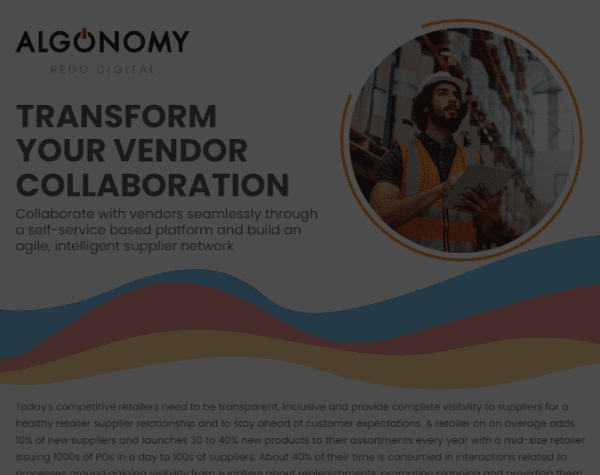A Major US-based Convenience
Store Retailer Takes Its Supplier
Collaboration to the Next Level
Outcomes
reduction in
out-of-stock
across stores
increase in revenue
reduction in the cost of inventory
increase in supplier-funded promotions
million additional rebate
million potential additional revenue with data monetization
Overview The client is one of the largest chains of retail outlets with more than 600 truck stops and convenience stores in 40+ states in the United States and over 900 vendors/suppliers. With a geographically wide coverage area and a smaller outlet format, the client faced multiple challenges in its supplier processes:
Limited inventory holding capacity led to frequent stock-outs.
Inventory position visibility had a lag of 48 hours, leading to delayed interventions to reduce over/understock.
Supplier-funded promotions and rebates were not efficient due to data silos and fragmented processes.
Data was shared with suppliers on an ad-hoc basis, making it difficult to derive insights.

With the objective of creating greater transparency and improving process efficiency across the supplier ecosystem, the client was looking for a scalable platform that would enable a data-driven culture in its internal teams/suppliers and make better decisions on a day-to-day basis.
The ROI of Automated Supplier Management
The client benefited from Vendor Link in the following ways

With the help of Vendor Link’s predictive out-of-stock feature and real-time inventory visibility to suppliers, the client was able to reduce out-of-stocks by 30% and inventory carrying cost by 5%.

Vendor Link’s smart supplier collaboration features enabled the customer to increase supplier-funded promotions by 15% and generate additional rebate worth $2 million.

The platform enabled interactive on-demand access to data insights and reports for suppliers, opening up $1.8 million worth of opportunity through data monetization.

Vendor Link helped the client improve supplier collaboration by enabling real-time decision-making and greater collaboration across store replenishment, supplier-funded promotions and rebates, while providing additional revenue opportunity in the form of data monetization.
Looking for a Personalized Demo? Let’s Talk.

 in Sweden from 7 - 8 October 2025. Pre-book a meeting to connect with our
product experts.
in Sweden from 7 - 8 October 2025. Pre-book a meeting to connect with our
product experts.


















